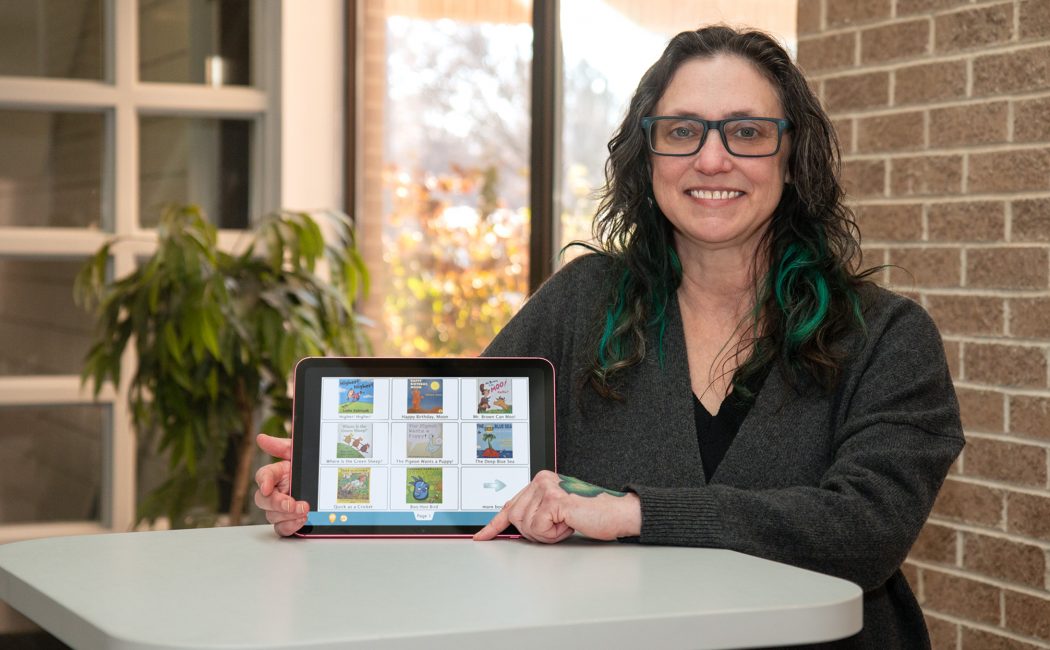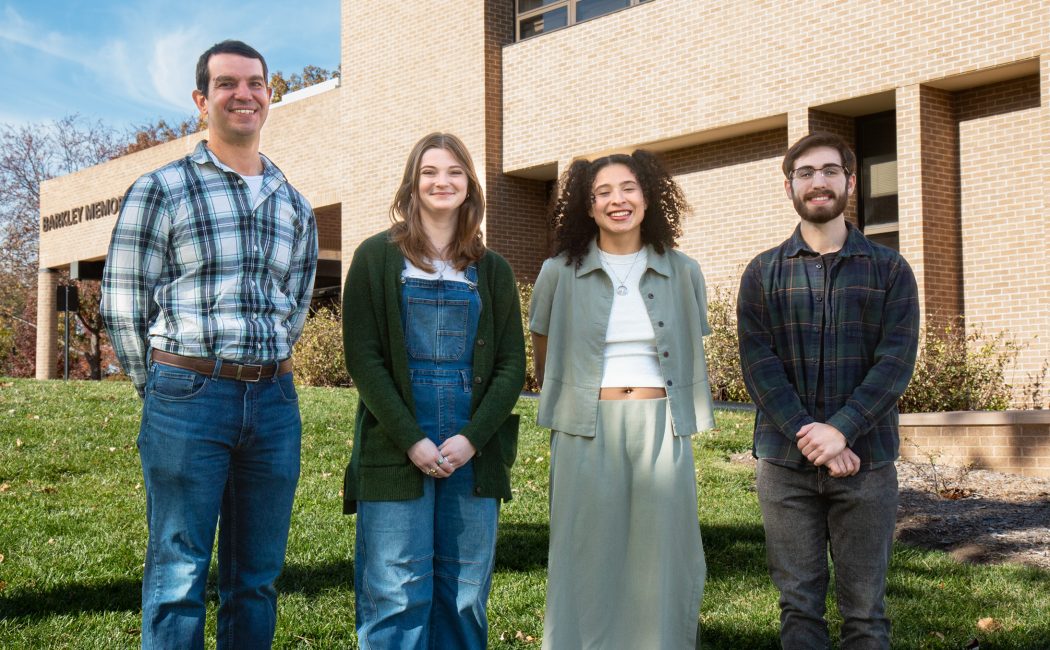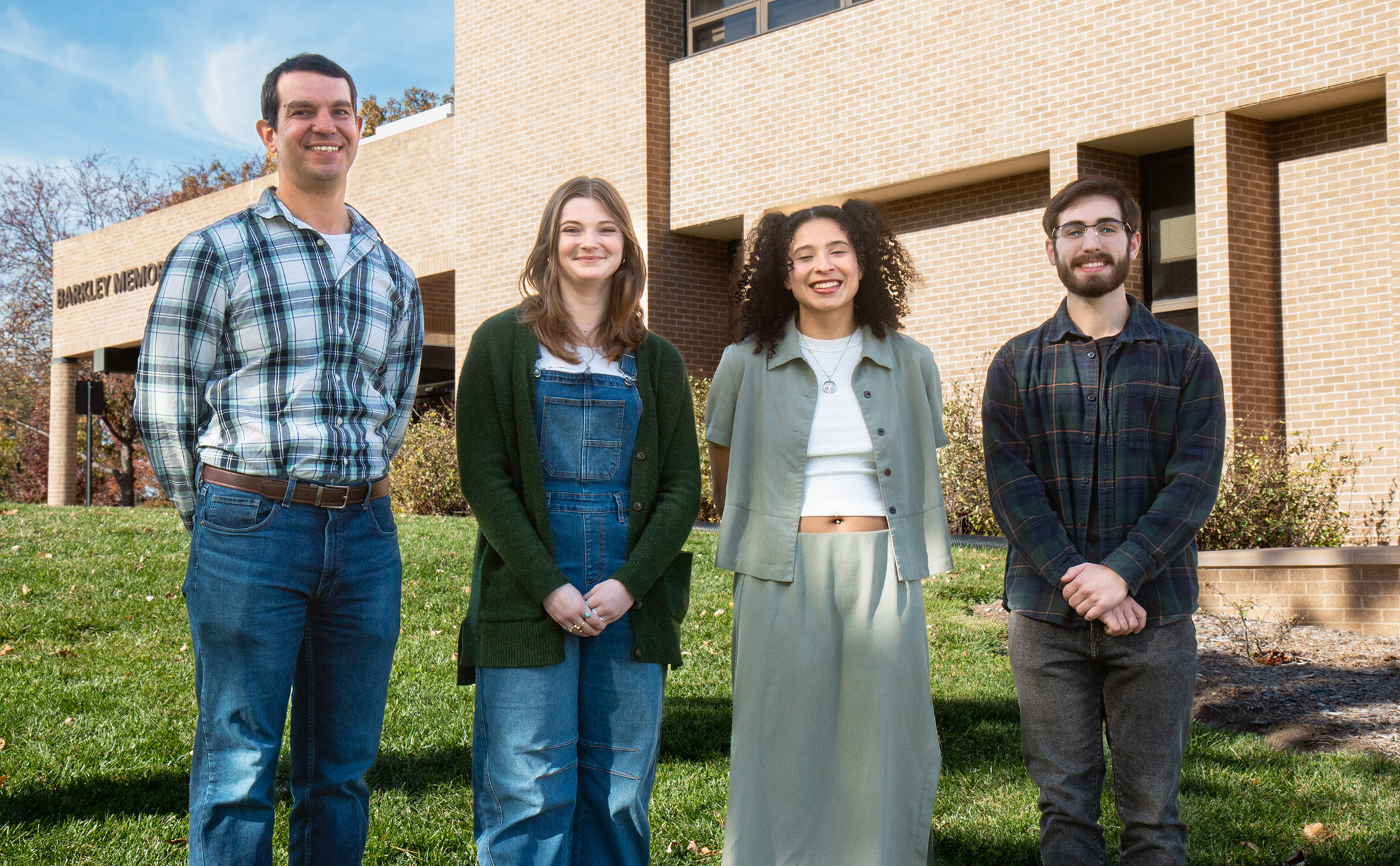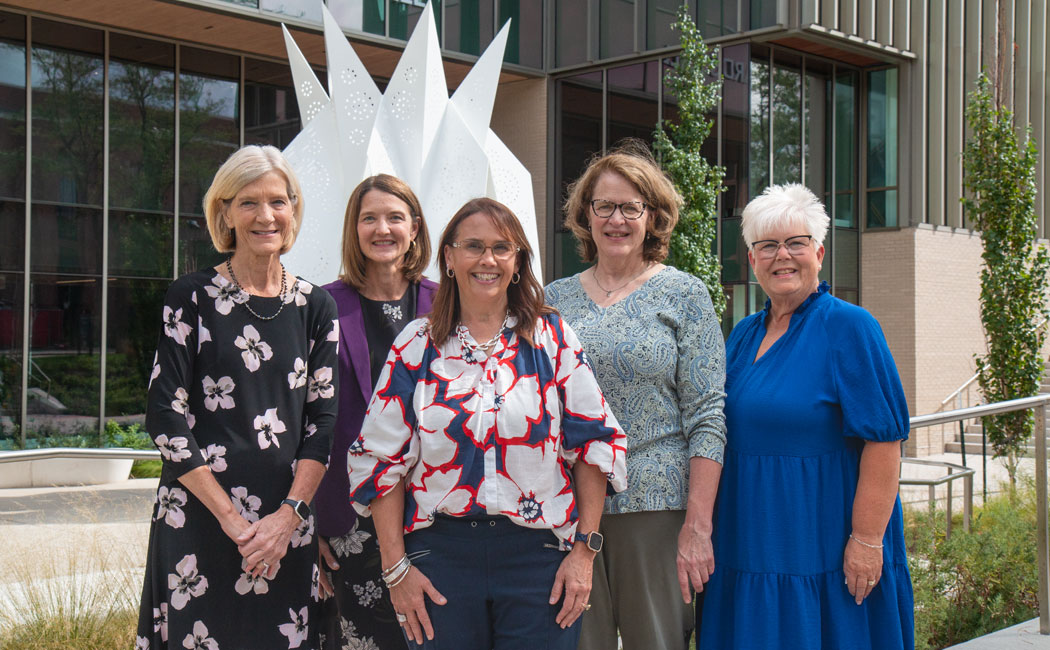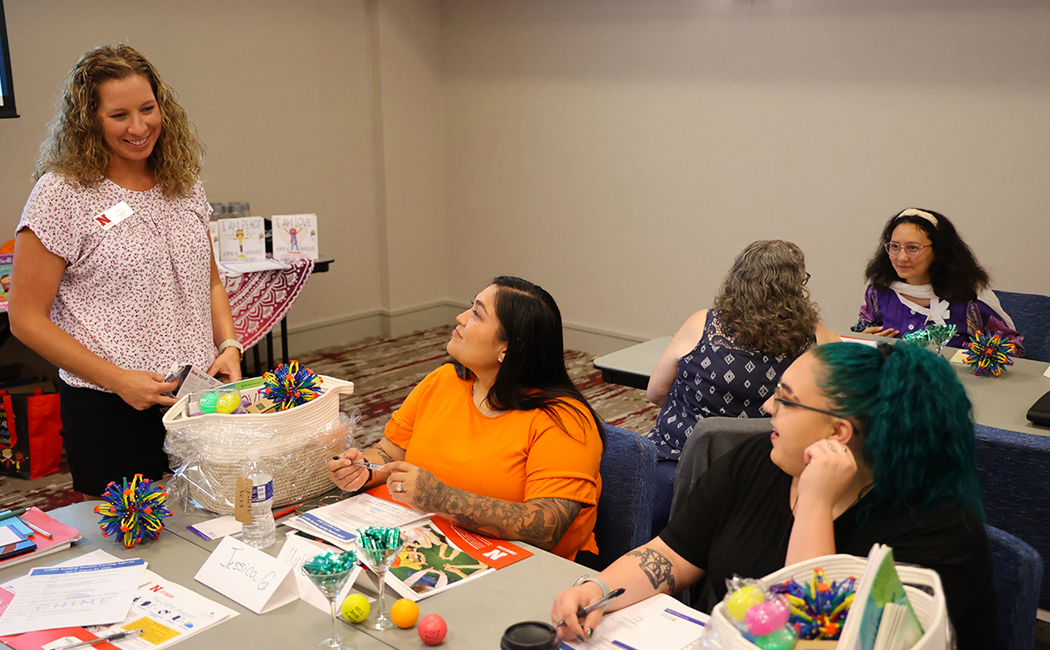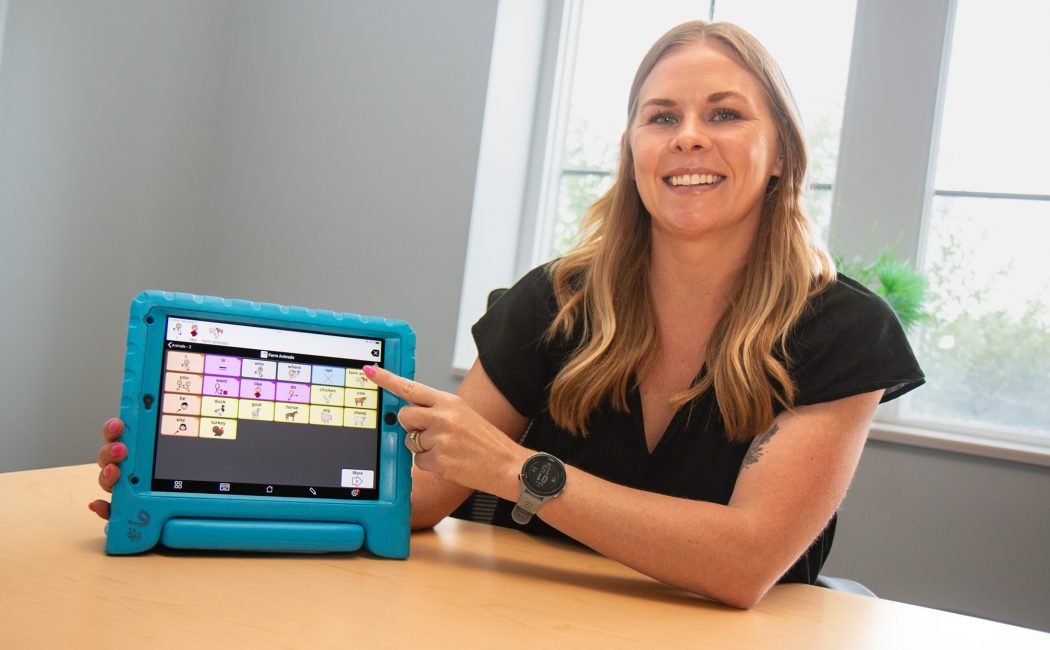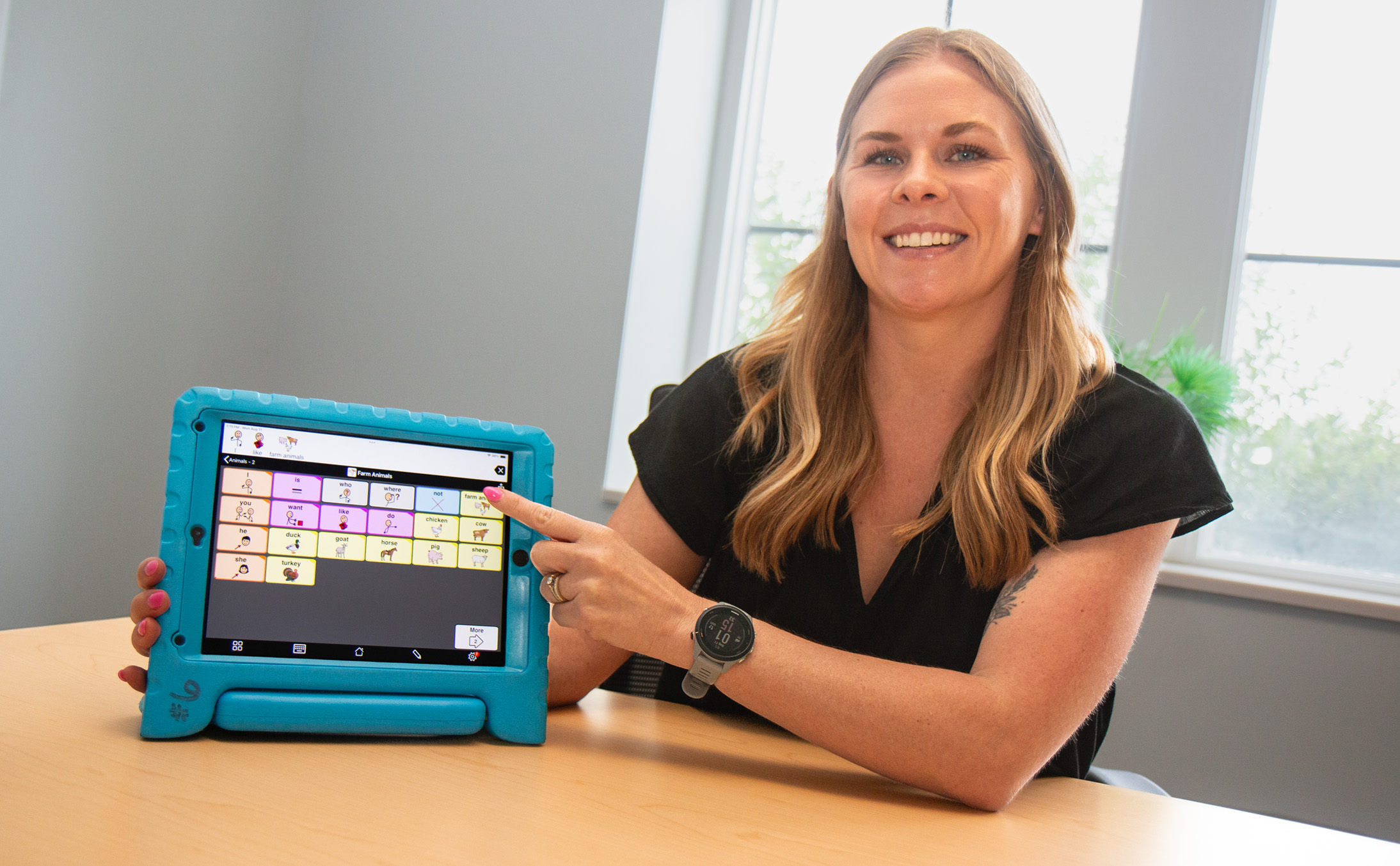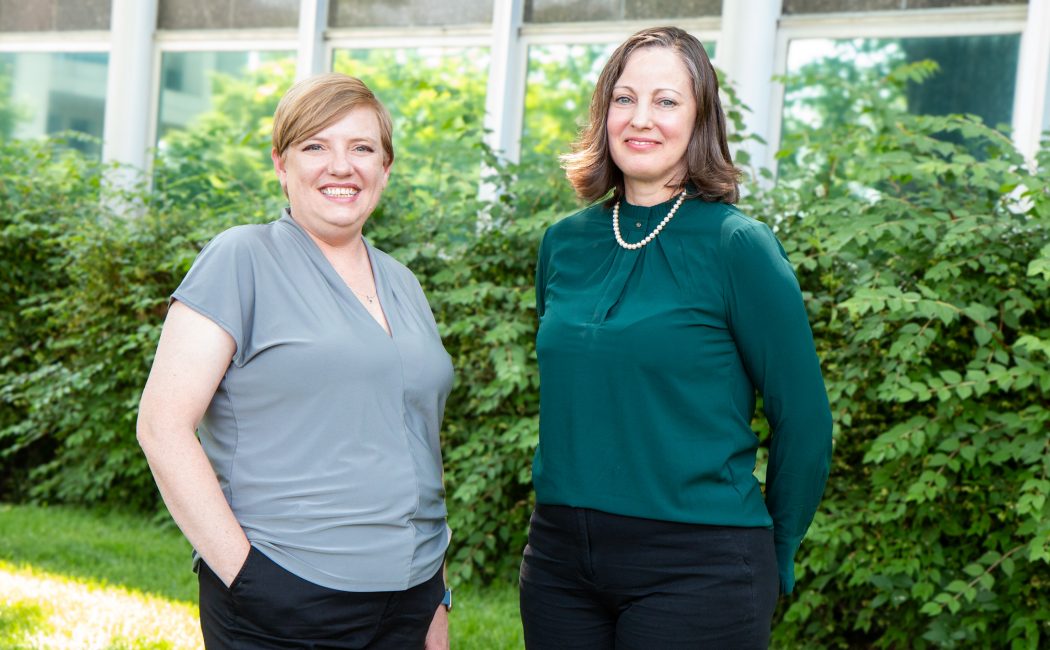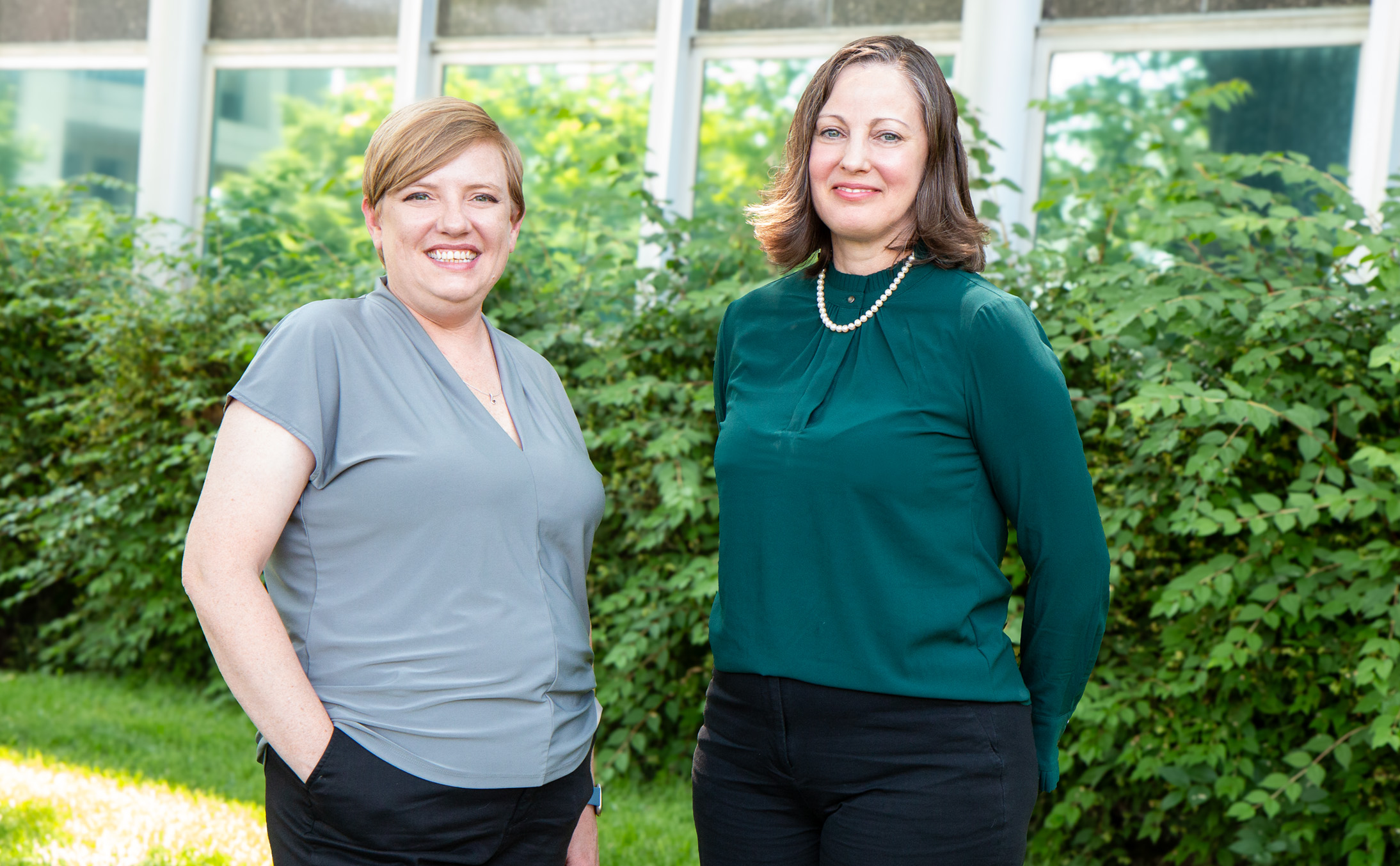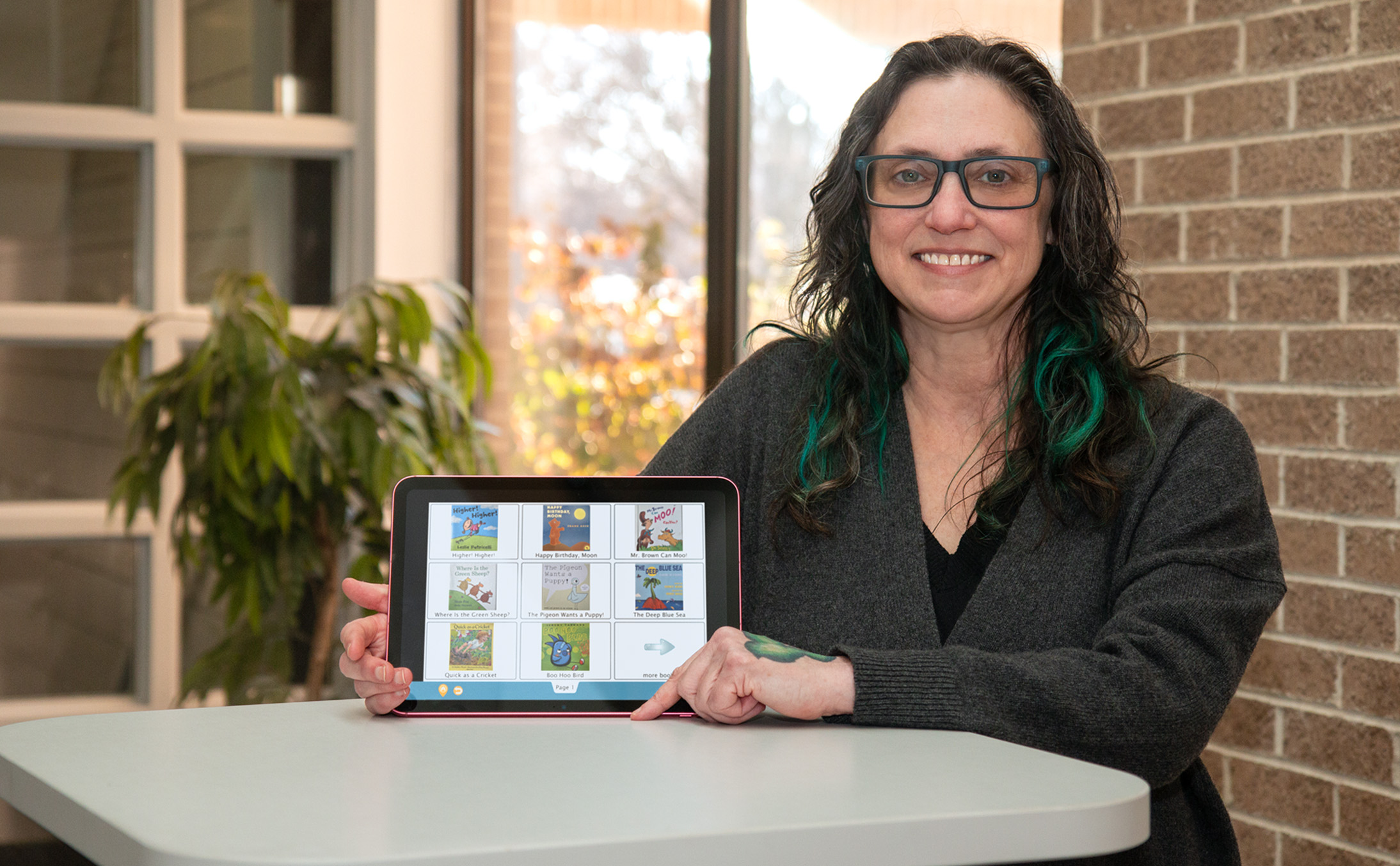
For autistic people — especially those with intellectual disabilities, or others with extensive support needs — communicating needs and ideas can be difficult. Many rely on intense individualized support and educational interventions.
When spoken words are not enough, alternative and augmentative communication (AAC) is often needed to meet their daily needs and wants. Common methods include gestures or facial expressions, sign language and speech-generating mobile apps for iPads or phones. While these methods can be helpful, they can also be costly and tricky to use effectively as treatments.
